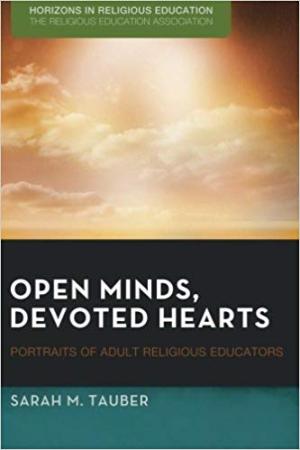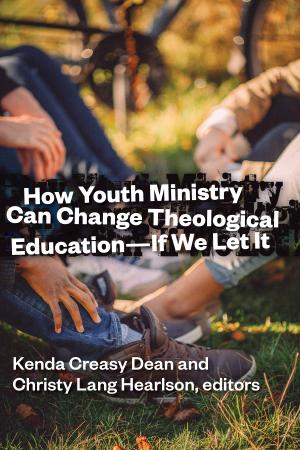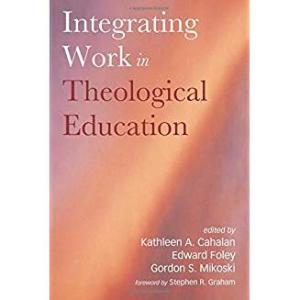Resources

How do religious educators meaningfully engage adult learners? How do they invite adults to begin a learning journey and inspire them to stay on it? In an era of "spiritual but not religious," how can religious educators, and clergy in particular, respond to the yearnings of adults for connection, wholeness, and purpose? Open Minds, Devoted Hearts offers the examples of three outstanding congregational rabbis whose teaching answers that call to action. Through innovatively incorporating biographical portraits and educational scholarship the book provides a comprehensive exploration of how the themes of narrative, transformation, and spirituality bring adult religious educators and learners into a powerful interactive educational process. The portraits and accompanying analysis reveal how constructing personal meaning and building sacred community through study situates adult learning as a dynamic centerpiece of an energized congregational life. (From the Publisher)
A special issue of Teaching Theology & Religion on teaching and learning strategies for religious leadership formation.
This Forum explores what the Association of Theological Schools (ATS) has been learning about formation in online contexts through the Educational Models and Practices project. Deborah Gin's opening essay briefly enumerates operating assumptions, several widespread misconceptions, and emerging recommended practices. G. Brooke Lester proposes a definition of formation as transformation towards community, which is grounded in constructivist learning theory. He then reflects on the possibilities for this kind of community through online learning environments. Barbara Blodgett's contribution draws on “transactional distance theory” to analyze how a variety of pedagogical techniques (both online and face to face) can work to either exacerbate or minimize the distance between learners, which is an important contributor to formation and community. The Forum originated as panel presentations at the November 2017 Society of Biblical Literature and American Academy of Religion conferences.
This article presents a pedagogical approach to training seminarians for faith leadership in the era of what Heidi Campbell has called “networked religion.” It argues that the increasing digital mediation of religious practice, expression, and community represents an opportunity for students to explore and inhabit ministry sites and roles from “within” the seminary classroom. Using education scholars' discussions of new digital geographies, gaming scholars' conception of game space, and reflection on classroom‐tested “quick challenges,” the author presents pedagogical principles for designing authentic new media learning experiences. Such activities bridge teaching spaces and ministry spaces to promote active learning through observation and immersion, simulation and role‐playing.
Grading systems matter more to the teaching and learning enterprise than many teachers may realize, as demonstrated in the author's experience of adopting a new one. Different systems emphasize different values such as excellence vs. perfection, achievement vs. talent, and second chances vs. partial credit. The author relates her experiment with specifications grading, an outcome‚Äêbased, pass/fail, rubric‚Äêbased, and contractual grading system, and demonstrates its promise. She then addresses three questions her experiment raised: Should I grade at all and if so, toward what end? Exactly what am I grading when I grade? and Is there any way to lessen the sting of failure?
Journal Issue. Full text is available online.

Click Here for Book Review Since 1993, forty-nine theological seminaries have created opportunities for high school students to participate in on-campus High School Theology Programs (HSTPs) that invite them to engage in serious biblical and theological study. Many of the young people who take part in these programs go on to become pastoral or lay leaders in their churches. What has made these programs so successful — especially given the well-documented "crisis of faith" among young people today? In this book thirteen contributors — many of whom have created or led one of these innovative theology programs — investigate answers to this question. They examine the pedagogical practices the HSTPs have in common and explore how they are contributing to the leadership of the church. They then show how the lessons gleaned from these successful programs can help churches, denominations, and seminaries reimagine both theological education and youth ministry.

Click Here for Book Review If only we could do a better job of helping students at "connecting the dots," theological educators commonly lament. Integration, often proposed as a solution to the woes of professional education for ministry, would help students integrate knowledge, skills, spirituality, and integrity. When these remain disconnected, incompetence ensues, and the cost runs high for churches, denominations, and ministers themselves. However, we fail in thinking that integrating work is for students alone. It is a multifaceted, constructive process of learning that is contextual, reflective, and dialogical. It aims toward important ends--competent leaders who can guide Christian communities today. It entails rhythms, not stages, and dynamic movement, including disintegration. Integrating work is learning in motion, across domains, and among and between persons. It is social and communal, born of a life of learning together for faculty, staff, administrators and students. It is work that bridges the long-standing gaps between school, ministry practice, and life. It's a verb, not a noun. Here a diverse group of theological educators, through descriptive case studies, theological reflection, and theory building, offer a distinctive contribution to understanding integrating work and how best to achieve it across three domains: in community, curriculums, and courses. (From the Publisher)
Sexual activity and desire have often been seen as inimical to Christian spirituality and practice, and many people have come to view Christianity as austere and shaming regarding sexuality. However, sexuality, religion, and policy-making have become so intertwined, that to ignore how they intersect and affect particular individuals' lives does a disservice to students. This article presents resources and strategies for incorporating the topic of sexuality into liberal undergraduate and graduate theological classrooms. It provides guidance to instructors lacking research expertise in sexuality and focuses on three main pedagogical categories: perspective transformation; embodiment pedagogy; and sexual violence and trauma. One purpose of this article is to generate conversation: there is a need for further collaboration with colleagues who are experts in various disciplines to continue mining resources to offer diverse strategies and resources.